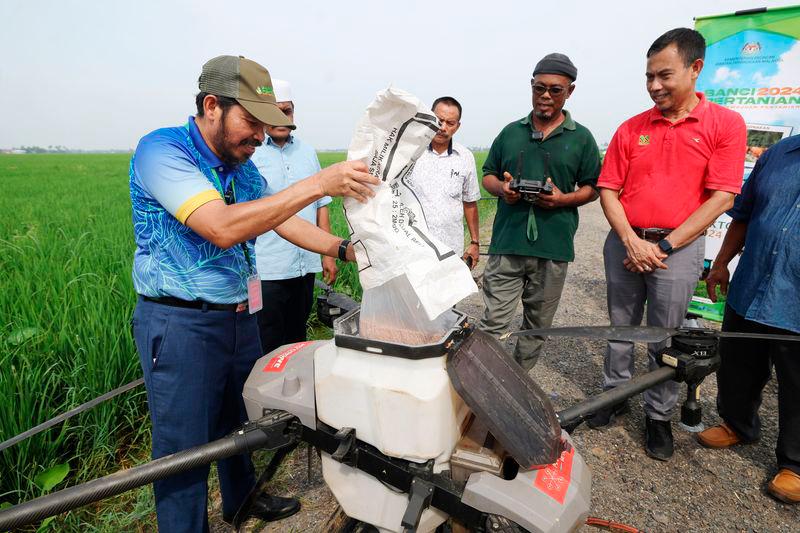ALOR SETAR: The Department of Statistics Malaysia (DOSM) is confident it will fully complete the 2024 Agricultural Census by the set Oct 10 deadline.
Chief Statistician Datuk Seri Dr. Mohd Uzir Mahidin stated that currently, the census, which began on July 7, is 30 percent complete.
“In Kedah, we have completed visits to 19,700 residential areas involved in agricultural activities. Based on our current progress, we expect to complete the census within three months, by October 10.
“The cooperation and commitment from all parties have been excellent, with agricultural agencies, in particular, recognising the importance of giving this census their full attention,“ he said during a census fieldwork programme in Kampung Masjid, Kubang Rotan today.
Mohd Uzir, who is also the Commissioner for the 2024 Agricultural Census, added that the census covers four subsectors: crops, livestock, fisheries, and logging and forestry.
He noted that the sector has approximately over 1.3 million households or individuals, along with nearly 20,000 registered organisations, institutions, co-operatives, and associations.
He added that conducting the census is essential for gathering data on agriculture, particularly to address the challenges faced by farmers.
Regarding the census in Kedah, Mohd Uzir said the focus was on issues related to padi cultivation, including climate change, water supply, and the use of technology.
“Through this census, we will also identify unused lands, their quantities, and potential uses. We will present these findings and their implications once the census is complete,“ he said.
Meanwhile, in a statement issued in conjunction with the census fieldwork programme, DOSM stated that according to Kedah’s 2023 Gross Domestic Product Report, the agricultural sector contracted by 2.8 percent, with an added value of RM5.5 billion, due to declines in the fisheries and crop (rubber and padi) subsectors.
However, the positive growth in the livestock subsector has offset the decline.
DOSM said the Agricultural Census provides fundamental data on agricultural holdings, including demographic information, crop yields, input costs, farm sizes, land use, and ownership, mechanisation, and technology adoption.
This data will be used to develop short- and long-term policies and programmes, enhance food security, improve productivity, and promote sustainable agriculture.
“The 2024 Agricultural Census is expected to assist the government in assessing the stability of national rice supply to meet domestic needs and reduce reliance on imports,“ he said.









